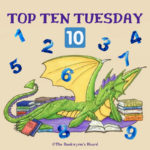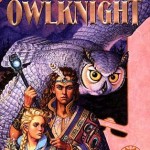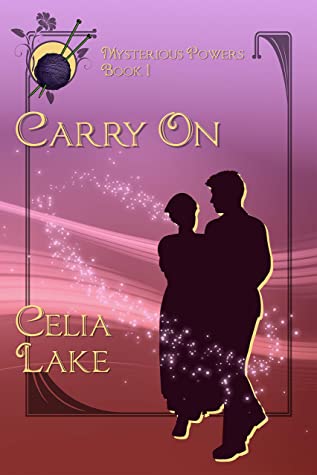 The Redemption of Althalus on December 2000 (first hardcover edition)
The Redemption of Althalus on December 2000 (first hardcover edition) Pages: 742
Purchase: Amazon
Add to Goodreads

It would be sheer folly to try to conceal the true nature of Althalus, for his flaws are the stuff of legend. He is, as all men know, a thief, a liar, an occasional murderer, an outrageous braggart, and a man devoid of even the slightest hint of honor.
Yet of all the men in the world, it is Althalus, unrepentant rogue and scoundrel, who will become the champion of humanity in its desperate struggle against the forces of an ancient god determined to return the universe to nothingness. On his way to steal The Book from the House at the End of the World, Althalus is confronted by a cat--a cat with eyes like emeralds, the voice of a woman, and the powers of a goddess.
She is Dweia, sister to The Gods and a greater thief even than Althalus. She must be: for in no time at all, she has stolen his heart. And more. She has stolen time itself. For when Althalus leaves the House at the End of the World, much wiser but not a day older than when he'd first entered it, thousands of years have gone by.
But Dweia is not the only one able to manipulate time. Her evil brother shares the power, and while Dweia has been teaching Althalus the secrets of The Book, the ancient God has been using the dark magic of his own Book to rewrite history. Yet all is not lost. But only if Althalus, still a thief at heart, can bring together a ragtag group of men, women, and children with no reason to trust him or each other.
Review
Patrick Rothfuss isn’t the first writer to tackle picaresque fantasy (though he’s probably the best.) David and Leigh Eddings did it in 2001 with The Redemption of Althalus, a novel that blends epic and picaresque fantasy elements to tell the story of a likable thief who becomes. . . quite a bit more. Along the way, there are companions to gather; evil counterparts to, er, counter; battles to fight; schemes and deceptions to perpetrate or guard against; hearts to win.
The Redemption of Althalus is a little bit of a misnomer, not because it’s inaccurate but because it’s not the primary focus of the book. While Althalus is “redeemed” (in a sense), the main plot revolves not around his redemption arc but around the typical “save the world from utter destruction and darkest evil” trope. Althalus is necessary, indeed central, to that objective, and his redemption (if you can call it that) is critical to it, but much of that redemption is glossed over in the first section of the book. By the time the action really gets going, Althalus is already at least partially redeemed—well, to the point of, say, “chaotic good,” which is about as far as he goes. He’s still willing to lie, cheat, steal and even kill, but now it’s in a good cause.
What makes the book work for me isn’t so much the plot, which is long, episodic, and involved, and could definitely have benefited from some tightening here and there. The main characters carry the story from the start—mainly Althalus and Emmy/Dweia—helped along by the Eddings’ straightforward, almost conversational prose. Anyone familiar with the authors’ Belgariad or Mallorean series will recognize their narrative voice, which employs simple, direct sentences leavened by occasional deadpan humor. Make that “more than occasional”; despite the fact that Dweia, Althalus, and their companions are trying to prevent the destruction of the universe, there’s enough humor in the book to keep me chuckling and sometimes even laughing out loud. It’s not a funny book, but there are a lot of funny moments.
Though the book is told in third person, Althalus is the POV character; we only see into other characters’ minds and hearts through him. Given the complexity of the plot, that provides a welcome point of stability and cohesion that, along with the direct prose, makes it easier to follow the story through the various twists and turns.
In the second section of the book, Althalus gathers companions, all of them young: the soldier Eliar; Andine, a princess; Bheid, a priest of the god Deiwos; the telepath Leitha; and Gher, a boy thief with a philosopher’s mind. The six of them, plus Emmy/Dweia, make up the main characters, but there are a slew of secondary characters to keep track of as well, from the six henchmen of Daeva (their chief opponents) to numerous political and military leaders in various countries. Again, the straightforward narrative style helps to avoid confusion, but if you have trouble with names, it wouldn’t hurt to write up a cast of characters as you read.
I read The Redemption of Althalus when it first came out, and felt that it didn’t quite measure up to the Belgariad series, which remains my favorite of David Eddings’s works. My recent rereading hasn’t changed that opinion. I do enjoy the book, or I wouldn’t have bothered rereading it. It’s entertaining; Althalus is a wonderful character, and I’m rather fond of some of the others as well, particularly Emmy and Gher. But as I mentioned earlier, the plot wanders a bit and could definitely have used some tightening, and the story never completely draws me in the way the Belgariad and even the (highly imitative) Mallorean series do… hence the 3.5 rating.
In a nutshell: Entertaining if overly-long picaresque/epic fantasy, but not the authors’ finest work.











































